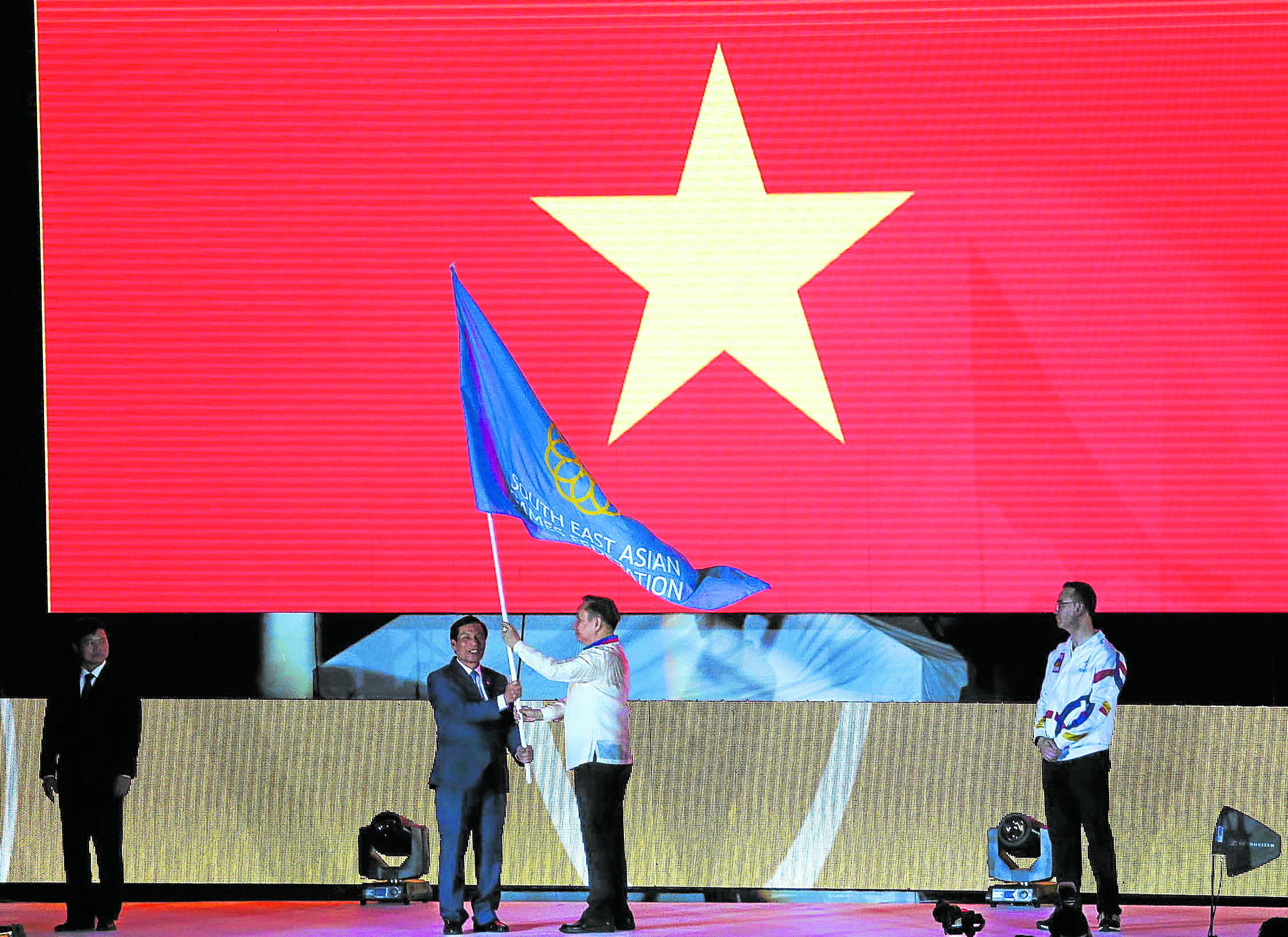
Rep. Abraham “Bambol” Tolentino (right), the president of the Philippine Olympic Committee, hands the SEA Games federation flag to a Vietnam official in hosting turnover rites at the closing of the 2019 Southeast Asian Games. —MARIANNE BERMUDEZ
It’s going to take cooperation on so many levels, but the Philippine Sports Commission (PSC) is confident it can weather the financial challenges that will rise following the postponement of the Southeast Asian (SEA) Games.
“In the end, it’s still the same thing—everybody has to get together for this,” PSC commissioner Ramon Fernandez, the chef de mission for Team Philippines to the SEA Games that was supposed to be held in Hanoi, Vietnam, later this year, said on Thursday on the heels of the announcement earlier in the day that the biennial meet will be moved to 2022.
Ideal schedule
Philippine Olympic Committee president Rep. Abraham “Bambol’’ Tolentino said the SEA Games Federation is “pressuring” Vietnam to come up with the new dates to avoid clogging up next year’s sporting calendar, which will also feature the Asian Games in September.
“[T]hey are choosing either March, April, or May,” said Tolentino. “We gave them 10 days to decide … we’re kind of pressuring them to decide.”
Fernandez said an April staging or earlier would be ideal not just to make sure there is enough time to prepare for the Cambodia staging in 2023 but also to avoid putting too much of a financial strain on the preparations of national athletes.
The PSC had a P200-million budget for the training and participation of national athletes to the SEA Games this year. And while he said that amount could sustain training until the end of the year, Fernandez said the government sports agency will need to source more funds—most likely via the General Appropriations Act—for the additional months of training next year and the actual participation of the athletes in the event.
But Fernandez also hopes for the same level of cooperation they got from National Sports Associations (NSA) and Local Government Units (LGU) this year.
“We hope that NSAs will continue to push for more private funding to help us and also we will request the LGUs that are already helping out by adopting national teams to extend that same courtesy for a longer time,” Fernandez said.
“That will really help soften whatever the financial impact is of the postponement.”
Earlier on Thursday, the SEA Games Federation collectively agreed to reschedule the event to next year because of a spike in infections caused by the coronavirus pandemic.
“The cases (of COVID-19) have really increased in the region lately. With that, the entire federation unanimously decided not to hold the SEA Games this year,’’ said Tolentino after the virtual meeting of the 11-member countries of the federation.
Defending champion
Due to the postponement, the bubble training of 626 athletes from 39 sports will likewise be moved to a much later schedule, which will further help ease the pressure on the finances.
“If there’s something good about this postponement, it’s the luxury of giving our athletes more time to train aside from the fact that we are still the defending overall champion,’’ said Tolentino.
Team Philippines captured the overall title of the 30th SEA Games held in the country in 2019 with 149 gold medals.
The meet was originally set Nov. 21 to Dec. 2 and would gather 10,000 athletes, coaches and officials.
With the postponement, Filipino athletes will have a full plate next year with the Asian Games in Hangzhou, China, in September and the Asian Indoor Martial Arts Games in Bangkok, Thailand, on March 20 coming up.